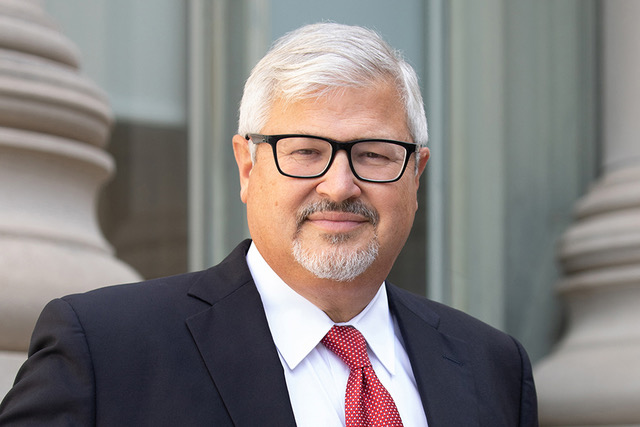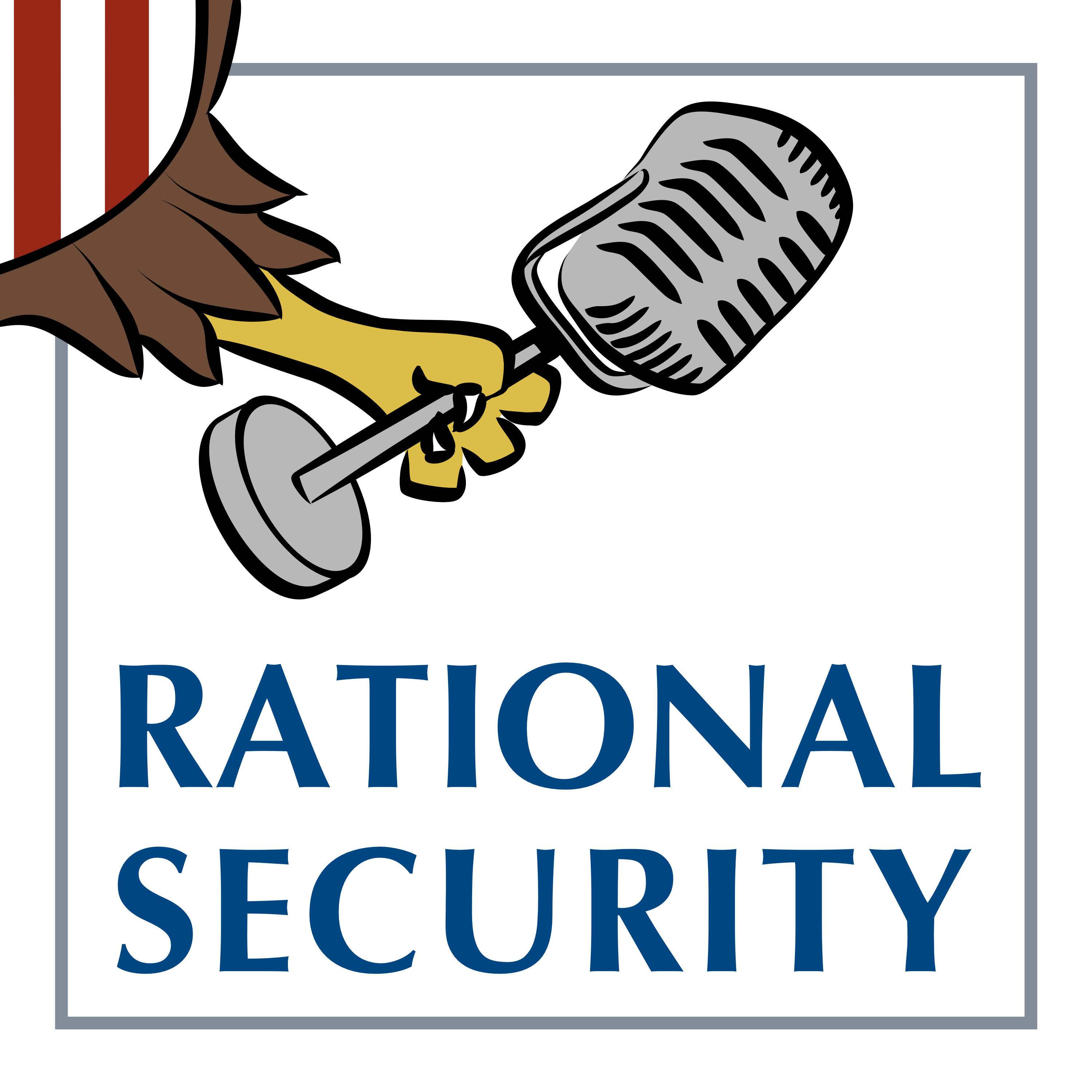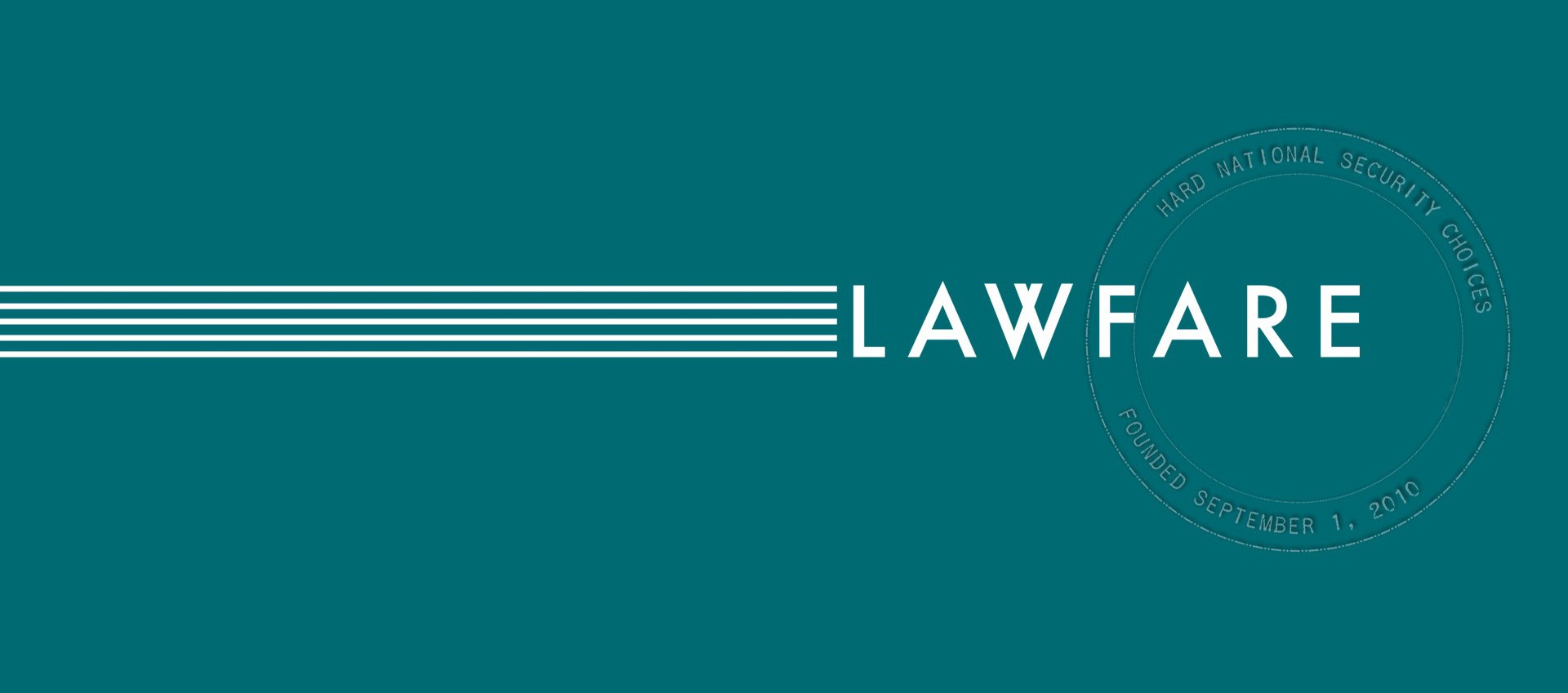Why the Supreme Court Should Grant Certiorari in United States v. Trump
699a.jpg?sfvrsn=ad4bd1de_5)
Published by The Lawfare Institute
in Cooperation With

I agree with the D.C. Circuit’s conclusion in United States v. Trump that former President Trump is not immune from prosecution for criminal acts committed in office. Nonetheless, I think the Supreme Court should review the case. The main reason to grant certiorari is simply that, as Supreme Court Rule 10 states, “a United States court of appeals has decided an important question of federal law”—a former president’s immunity from prosecution—“that has not been, but should be, settled by [the Supreme] Court.” An additional but less obvious reason why the D.C. Circuit decision is important is that it contains loose reasoning that will have a potentially large collateral impact on the construction of criminal statutes to burden the Article II authorities of sitting presidents.
* * *
The court rejected the three arguments that Trump made for immunity. It ruled that (a) Article III courts have the power, consistent with Marbury v. Madison, to review the president’s official acts for compliance with law under “the separation of powers doctrine”; (b) functional policy considerations do not require immunity for the former president; and (c) the Impeachment Judgment Clause is no bar to criminal prosecution.
The problem in the opinion comes mainly in its implications for the application of criminal statutes to the president. To explain the problem, I must briefly canvass Supreme Court and Article II jurisprudence on the applicability of generally worded criminal statutes to the president. (I draw in part from this old analysis.)
The executive branch recognizes a broad constitutionally based clear statement rule to determine whether generally worded criminal statutes apply to the president. In a 1995 opinion, Office of Legal Counsel (OLC) head Walter Dellinger described the presidential clear statement rule as follows: “[G]eneral statutes must be read as not applying to the President if they do not expressly apply where application would arguably limit the President’s constitutional role.” Dellinger added: “[S]tatutes that do not expressly apply to the President must be construed as not applying to the President if such application would involve a possible conflict with the President’s constitutional prerogatives” (emphasis added). Dellinger acknowledged an exception to this rule when a statute “raises no separation of powers questions were it to be applied to the President.” He gave the example of bribery, since the Constitution “confers no power in the President to receive bribes,” and indeed specifically contemplates impeachment for “bribery” and “specifically forbids any increase in the President’s compensation for his service while he is in office, which is what a bribe would function to do.”
This executive branch rule is grounded in Supreme Court precedent but goes beyond that precedent. The main case is Franklin v. Massachusetts (1992), where the Court reasoned that “[o]ut of respect for the separation of powers and the unique constitutional position of the President,” the term “agency” in the Administrative Procedure Act (APA) did not apply to the president—even though the express exceptions to the term did not include the president. The Supreme Court cited “respect for the separation of powers and the unique constitutional position of the President” as a basis for requiring “an express statement by Congress” to subject presidential decisions to the APA’s abuse of discretion standard. In addition, in Public Citizen v. Department of Justice (1989), the Supreme Court applied the clear statement rule (among other tools) to determine that the president and Justice Department did not “utilize” the American Bar Association under the Federal Advisory Committee Act when it sought its advice on judicial nominations. The Court said that reading “utilized” to apply to the executive’s relationship with the ABA would raise serious questions about whether the statute “infringed unduly on the President's Article II power to nominate federal judges.” The Court added: “[W]e are loath to conclude that Congress intended to press ahead into dangerous constitutional thickets in the absence of firm evidence that it courted those perils.”
These Supreme Court decisions do not involve criminal statutes and do not contain a clear statement rule as broadly worded as the OLC’s. But they recognize a separation of powers concern about construing generally worded statutes in ways that burden the president’s Article II powers—a concern that may be heightened when criminal statutes are in play. Importantly, Special Counsel Jack Smith has recognized the validity of the OLC position. His brief in opposition to Trump’s immunity arguments in the D.C. District Court stated:
Courts construe statutes applied to a president for conduct during the presidency narrowly “[o]ut of respect for the separation of powers and the unique constitutional position of the President.” Franklin v. Massachusetts, 505 U.S. 788, 800-01 (1992). That approach reflects two principles: statutes should be interpreted to avoid serious constitutional questions, and Congress should not be assumed to have altered the constitutional allocation of powers between branches without clear assurance that it intended the result. See Walter Dellinger, The Constitutional Separation of Powers Between the President and Congress, 20 Op. O.L.C. 124, 178 (May 7, 1996). Relying on those principles, for example, the Department of Justice has concluded that three criminal statutes could not be applied against the president (or, in two cases, other Executive Branch officials). See Laurence H. Silberman, Conflict of Interest Problems Arising out of the President’s Nomination of Nelson A. Rockefeller to be Vice President under the Twenty-Fifth Amendment to the Constitution, at 5 (Aug. 28, 1974) (criminal conflict-of-interest statute, 18 U.S.C. § 208); Theodore B. Olson, Prosecution for Contempt of Congress of an Executive Branch Officer Who Has Asserted a Claim of Executive Privilege, 8 Op. O.L.C 101, 102, 140 (May 30, 1984) (the criminal contempt-of-Congress prohibition, 2 U.S.C. § 192); William Barr, Constraints Imposed by 18 U.S.C. § 1913 on Lobbying Efforts, 13 Op. O.L.C. 300, 305 (Sept. 28, 1989) (the Anti-Lobbying Act, 18 U.S.C. § 1913).
Smith then argued that the application of the statutes in the Jan. 6 case, like the bribery statute, “raise[s] no separation-of-powers issues because the Constitution grants a president no power to engage in a criminal conspiracy to defeat a federal government function through deceit, corruptly obstruct a congressional proceeding, or violate others’ constitutional right to vote.”
* * *
The problem with the D.C. Circuit opinion is that in places its reasoning is inconsistent with—and thus calls into question—this plain statement rule.
In Section IIIA, the court stated that “[t]he separation of powers doctrine, as expounded in Marbury and its progeny, necessarily permits the Judiciary to oversee the federal criminal prosecution of a former President for his official acts because the fact of the prosecution means that the former President has allegedly acted in defiance of the Congress’s laws.” It added that “former President Trump’s actions allegedly violated generally applicable criminal laws, meaning those acts were not properly within the scope of his lawful discretion.”
The court’s conclusion that Marbury does not preclude federal courts from entertaining a criminal prosecution of a former president may be right, but this reasoning is undisciplined and sweeps broadly. In saying that Trump’s acts “allegedly violated generally applicable criminal laws” and thus “were not properly within the scope of his lawful discretion,” the court gets matters exactly backward from the perspective of the plain statement rule. That rule holds that the generally applicable laws at issue here do not apply to the president if the statute “possibly conflicts” (as Dellinger put it) with the president’s constitutional prerogatives. By contending the opposite—that the president was not exercising lawful discretion because he allegedly violated generally applicable laws—the D.C. Circuit’s reasoning is in conflict with the plain statement rule.
The danger for the presidency in the court’s Section IIIA analysis is exacerbated by some of the court’s policy analysis in Section IIIB. The court stated, for example: “Instead of inhibiting the President’s lawful discretionary action, the prospect of federal criminal liability might serve as a structural benefit to deter possible abuses of power and criminal behavior.” Perhaps so, but this is, again, the opposite presumption of the plain statement rule, which emphasizes the importance of the president’s lawful discretionary action in the face of generally worded criminal laws, and is premised on a worry about the chilling impact of applying such laws to Article II action. This and similar statements, coming on the heels of the loose analysis in Section IIIA, cast further doubt on the plain statement rule.
The implications of the D.C. Circuit opinion for the plain statement rule matter for two reasons. First, Trump can and will argue at trial that at least some of the statutes he allegedly violated do not apply to him because they “possibly conflict” with the president’s constitutional prerogatives. Second, the plain statement implications will unduly constrain and chill presidents in office, not because they aim to commit crimes, but because they will be exposed to potentially much broader (and uncertain) criminal exposure in carrying out everyday Article II acts.
* * *
One might contend that the cited language in the D.C. Circuit opinion is irrelevant to the case since the court was analyzing the immunity of former presidents from criminal prosecution, not the applicability of generally worded statutes to presidential action while in office. But the two legal principles are conceptually related, and the court’s language in justifying immunity has clear implications for the plain statement rule. That rule as articulated by the Justice Department has never been examined by the Supreme Court—indeed, the Court has never had a case involving a prosecution of a president. The D.C. Circuit opinion, if not reviewed by the Supreme Court, will have an outsized influence on all questions related to the criminal liability of presidents, including the plain statement rule. (I thus disagree with my Lawfare colleagues—the D.C. Circuit opinion is not in every respect “narrowly tailor[ed],” and the judges who write a decision do not control its precedential impact.)
One might think that my analysis is nonetheless irrelevant, since the Court cannot grant certiorari to review the plain statement rule issue that was not raised or addressed below. I agree that the Court cannot grant certiorari on this issue (unless it adds the question, which I seriously doubt it would do). The importance of the immunity issue in the D.C. Circuit opinion is the main reason to grant, but the need for review is underscored by the opinion’s clear implications for the plain statement rule, which will potentially affect the scope of presidential power of future presidents. The Court, even if it affirms, could write an opinion that is more attentive to collateral separation of powers concerns than the rushed D.C. Circuit opinion.
Normally the Justice Department would raise this issue about presidential power, but in the extraordinarily unusual posture of this case, it will not. Trump’s lawyers in their certiorari petition will argue that the D.C. Circuit opinion is wrongly decided and can there talk about the opinion’s collateral impact on the plain statement rule. Trump can claim that the plain statement implication matters to him not just at his trial but also if he is reelected. It will be interesting, if it comes to this, to see how the Justice Department finesses the issue in response.





